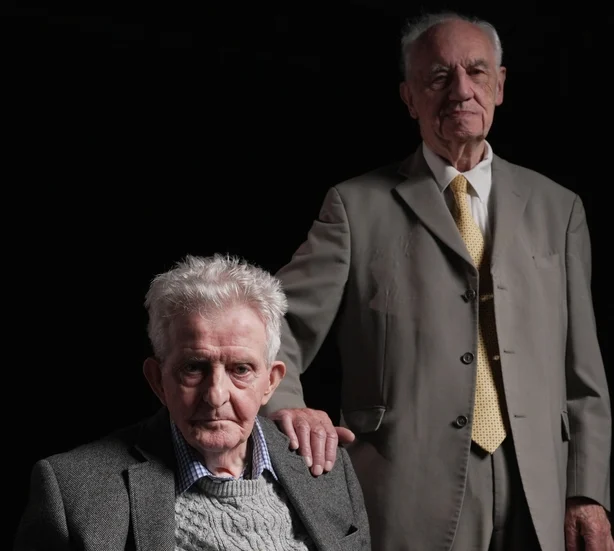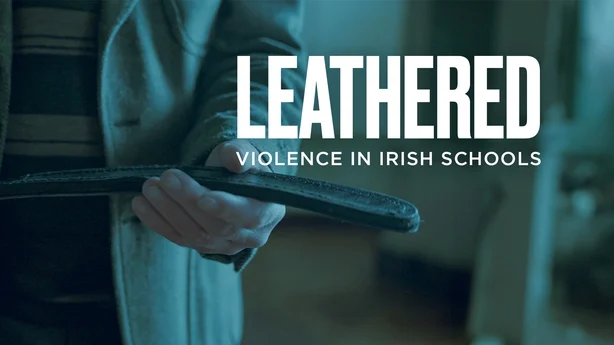Dec 24, 2024
Oct 30,2024
What would you do if your child came home from school one day to say their teacher had punched them in the face? Or had hit them so hard with a leather strap that they had bruises on their body and blood down their uniform?
Today, the answer seems obvious. Society would not and could not allow such behaviour to go unchallenged.
So why then was it ever deemed acceptable for past generations of schoolchildren in Ireland to be treated this way?
The issue of corporal punishment in Irish schools-and the even more vicious culture of violence it promoted-is something we examine in the new documentary Leathered: Violence in Irish Schools.
Filmed over the course of almost 18 months, it features the individual stories of children-now adults- from all over the country who bravely speak on camera for the first time about their experiences.
Many went to school every day in a climate of fear, knowing they faced the real and present danger of exactly this type of violence from adults who were supposed to protect them.
Not every teacher and not every school principal encouraged corporal punishment. But the culture at the time encouraged many to turn a blind eye.
As our filming progressed, I began to realise in talking to our interviewees that their stories were representative of potentially thousands of others who do not have a voice.
Often, our contributors nodded silently when I confided this to them, as if fully aware that they were speaking not just for themselves but many others who they grew up with and knew personally.
We soon discovered that the physical violence inflicted on children as young as four was frequently far worse than was officially allowed.
As early as 1932, the Department of Education's own rules on discipline stated that "only the principal teacher" or another person authorised for the purpose, should inflict Corporal Punishment.
It’s chilling to read now just how specific the rules are:
"Only a light cane or rod may be used for the purpose of inflicting the corporal punishment", they state. "The boxing of children’s ears, the pulling of their hair or similar ill-treatment is absolutely forbidden and will be visited with severe penalties."
In practice, such penalties were seldom if ever applied.

Veteran campaigner and Reform co-founder Frank Crummey is one of those who tried to shout stop throughout the 1960’s and 70’s. He and his fellow campaigner Martin Reynolds - alongside others such as Dr Mary Randles and her late husband Dr Paddy Randles - recall how they were labelled as troublemakers and cranks by the Church and State alike.
They were battling against a system which actively encouraged the use of physical chastisement in order to enforce discipline at a time of large class sizes and scant resources.
Not every teacher and not every school principal encouraged corporal punishment. But the culture at the time encouraged many to turn a blind eye.
As one former teacher who refused to use the leather tells us, if you wanted to get ahead in a school-or even just keep your job in a school where the principal or headmaster encouraged corporal punishment- it was difficult to speak out against the crowd.
The recent publication of the report of the Scoping Inquiry into historical sexual abuse in schools run by religious orders once again highlighted the historic failure of the State to protect its most vulnerable citizens.
Amidst an outpouring of public grief and anger, the Government announced plans for the establishment of a full State Inquiry.
But some of those who contacted the Inquiry team also sought to highlight the physical abuse they experienced while attending schools around the country. They were told that their alleged abuse fell outside the scope of the Inquiry team.
This raises very real and very current questions for Irish society today. How can we address the legacy of the past if we can’t even quantify the impact of physical abuse on the present?
As one of our courageous contributors, Eoin Costello, tells us: "What most people who've gone through experiences like me want is to be heard. They don't want the shrug "Ah sure you know it happened to all of us, (it) didn't do us any harm."
In advance of watching Leathered: Violence in Irish Schools, a suggestion.
Try asking anyone in their sixties or older if they were ever hit by their teacher at school or saw someone else being hit at school.
The likely answer will tell you all you need to know about just how pervasive - and long lasting - the effects of this violence are.

If you have been affected by any of the issues raised in this article, there is help available. Go here for more information.